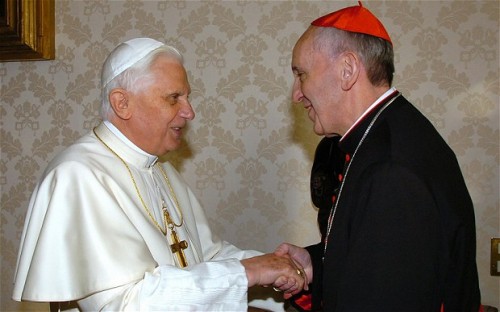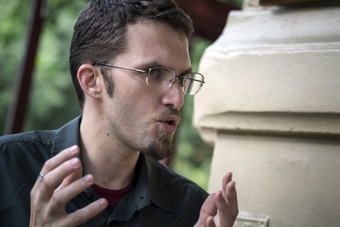Pope Francis came close to losing his position within the Catholic Church after he criticised his predecessor seven years ago.
By Alasdair Baverstock
 In 2005, then Pope Benedict, while quoting from an obscure medieval text, declared that the Prophet Mohammed, founder of the Islamic faith, was “evil and inhuman”, enraging the Muslim population and causing attacks on churches throughout the world before an apology was issued.
In 2005, then Pope Benedict, while quoting from an obscure medieval text, declared that the Prophet Mohammed, founder of the Islamic faith, was “evil and inhuman”, enraging the Muslim population and causing attacks on churches throughout the world before an apology was issued.
Reacting within days to the statements, speaking through a spokesman to Newsweek Argentina, then Cardinal Jorge Bergoglio declared his “unhappiness” with the statements, made at the University of Regensburg in Germany, and encouraged many of his subordinates with the Church to do the same.
“Pope Benedict’s statement don’t reflect my own opinions”, the then Archbishop of Buenos Aires declared. “These statements will serve to destroy in 20 seconds the careful construction of a relationship with Islam that Pope John Paul II built over the last twenty years”.
The Vatican reacted quickly, removing one subordinate, Joaquín Piña the Archbishop of Puerto Iguazú from his post within four days of his making similar statements to the Argentine national media, sending a clear statement to Cardinal Bergoglio that he would be next should he choose to persist.
Reacting to the threats from Rome, Cardinal Bergoglio cancelled his plans to fly to Rome, choosing to boycott the second synod that Pope Benedict had called during his tenure as pontiff.
“The only thing that didn’t happen to Bergoglio was being removed from his post”, wrote investigative journalist Horacio Verbitsky in his column in left-wing daily newspaper Página/24. “The Vatican was very quick to react,”
Cristina Kirchner, the Argentina president, stated at the time that such diatribes were “dangerous for everyone”.
Complete Article HERE!

